Although you may have read poetry by Shelley in school, were you aware that he was a famous adulterer? It is true that he had talent as a writer, yet when such adulterers are used as role models, it is no wonder that adultery is a problem in so many places. Although he did not believe in marriage per se, he married Harriett. He and Harriett eloped after she had been talked into dropping out of school. They eloped due to her parents disapproval of him and his ways. The couple moved around Europe for the next few years. He often expressed that it was demanded of him to lover her forever. He spoke of that demand as if it were a prison sentence. He was restless and never settled anywhere for long and was often in poor health.
After a while Percy left his wife Harriet and the kids behind so that he could chase after the woman who became Mary Shelly (Mary Wollstencraft Godwin) and perfect his writing. His wife was so distraught that she killed herself. Not only that, his reputation as an immoral person was used to prevent him from having custody of their children. Mary’s family disapproved of him as well, yet since he had paid off many of their debts, they felt obligated to him and were caught in a bind.
In many ways the story of Shelly could be describing many cheaters and the situations they create around them in the 21st century.
It may do more to teach students about his life and the consequences of his choices rather than idealize the ‘romantic’ lifestyle that he led, twittering about Europe and living around Pisa. If character was studied more than their poetry, each of us may learn some valuable life lessons.
Best Regards,
Jeff Murrah


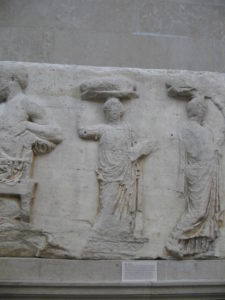

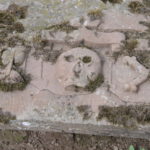

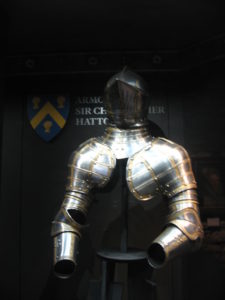


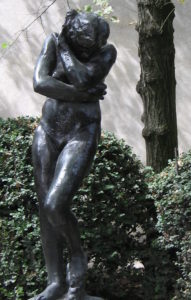
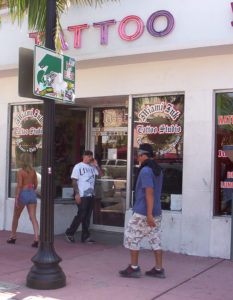






3 Responses
As a Shelleyan Scholar, I take issue with a number of brazen assertions you’ve made in this piece and I would like to clarify a few points.
First off, technicalities: his name is Percy Bysshe Shelley, not Byssy or Shelly, and there’s one ‘t’ in Harriet. Okay, now that that’s out of the way: where in the world did you get your supposed evidence? Shelley never wanted Harriet to ‘lover him only’ as you wrote. Shelley was a huge proponent of “free love”, for both the man and the woman. It’s true he was against marriage, but he married Harriet because of the censure she faced due to her relationship with him, and the times being what they were. Shelley also seemed to have a “hero complex”, and I think it’s safe to say he felt he was rescuing Harriet by whisking her away and marrying her.
Regarding the disintegration of Shelley and Harriet’s marriage – they were separated for some time before he began a relationship with Mary Godwin; although, he was still very much married to Harriet, it’s true. He did permanently separate with her, and leave her, in order to elope with Mary. Oddly enough, Shelley invited Harriet and their children (Ianthe and Charles) to join him, Mary, and Claire (Mary’s half sister) in Switzerland. Harriet declined, understandably. This is how Shelley worked, though: he believed in free love without limitations. Was he unfeeling to some of his partners? It appears so. However, he was also always very candid about his beliefs and his non-magnanimous attitudes and behaviours. He never hid his free love ideology, nor did he limit it to apply to only himself.
Lastly, it seems you’ve taken a rather puritanical view of Shelley, his lifestyle, and his “adultery”, which is ironic considering everything about Shelley. I think he’d be pretty amused by your tirade here. Are you suggesting, then, that we shouldn’t study the works of great writers/artists/craftspeople if they haven’t lived a puritanical lifestyle? Surely we can separate their work from their personal lives.
As a Shelleyan Scholar, I take issue with a number of brazen assertions you’ve made in this piece and I would like to clarify a few points.
First off, technicalities: his name is Percy Bysshe Shelley, not Byssy or Shelly, and there’s one ‘t’ in Harriet. Okay, now that that’s out of the way: where in the world did you get your supposed evidence? Shelley never wanted Harriet to ‘lover him only’ as you wrote. Shelley was a huge proponent of “free love”, for both the man and the woman. It’s true he was against marriage, but he married Harriet because of the censure she faced due to her relationship with him, and the times being what they were. Shelley also seemed to have a “hero complex”, and I think it’s safe to say he felt he was rescuing Harriet by whisking her away and marrying her.
Regarding the disintegration of Shelley and Harriet’s marriage – they were separated for some time before he began a relationship with Mary Godwin; although, he was still very much married to Harriet, it’s true. He did leave permanently separate with her, and leave her, in order to elope with Mary. Oddly enough, Shelley invited Harriet and their children (Ianthe and Charles) to join he, Mary, and Claire (Mary’s half sister) in Switzerland. Harriet declined, understandably. This is how Shelley worked, though, he believed in free love without limitations. Was he unfeeling to some of his partners? Of course, it appears so. However, he was also always very candid about his beliefs and his non-magnanimous attitudes and behaviours.
Lastly, it seems you’ve taken a rather puritanical view of Shelley and his “adultery”, which is ironic considering everything about Shelley. I think he’d be pretty amused by your tirade here. Are you suggesting, then, that we shouldn’t study the works of great writers/artists/craftspeople if they haven’t lived a puritanical lifestyle?
Q.
Thank you for your comments. I am not a Shelleyan Scholar. I am not aware of all the aspects of his life. My point was to view Shelly and his life through the eyes of a marriage and family therapist regarding adultery. Yes, I have taken a puritanical view of Shelly and his adultery. I recognize that some things get lost in translation when you apply the morals and ideas of one century to those of another century. My hope was to get readers to think about and consider the lives of some historic figures regarding adultery. By doing so it, I am hoping to awaken awareness regarding how previous generations dealt with adultery. Often when it happens, people think that ‘they’ are the only ones who have had to face such a crisis. It is often eye opening when they realize it is not a new problem at all. I intentionally prod sacred cows in order to get people to think and examine their own lives and values.
I am not suggesting or even hinting that we shouldn’t study the works of great writers/artist/craftspeople at all. I believe that there is much to be learned from them. The life lessons they illustrate can be transformational. I wish people studied them more. Ironically enough, I have often enjoyed and admired the writings of Byron, despite the differences of opinions that he and I would have regarding morality.
I appreciate your input and taking the time out to share your opinions. Through the sharing of such ideas, we all grow and learn.